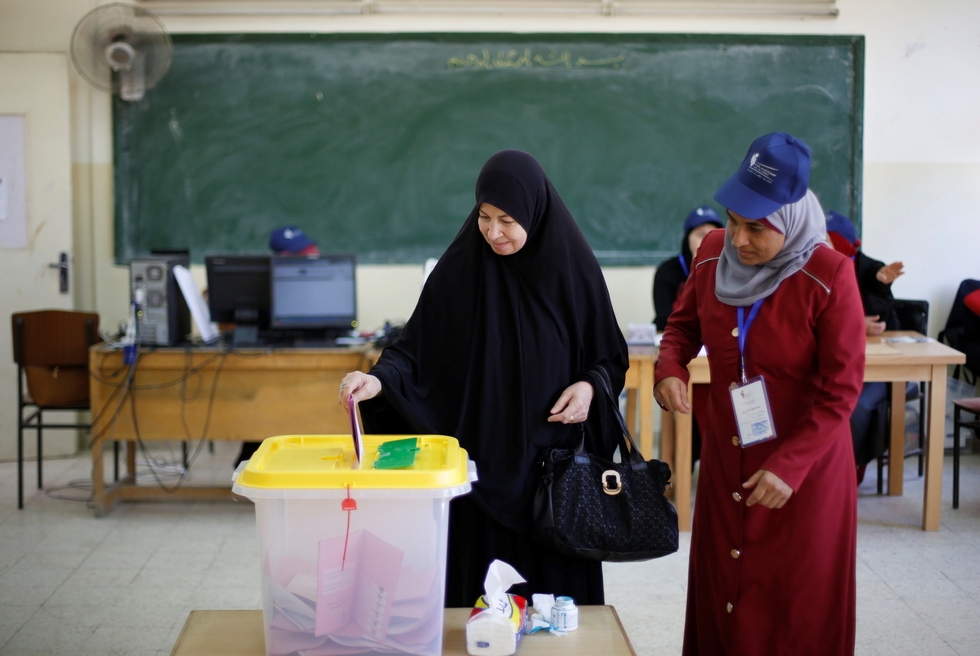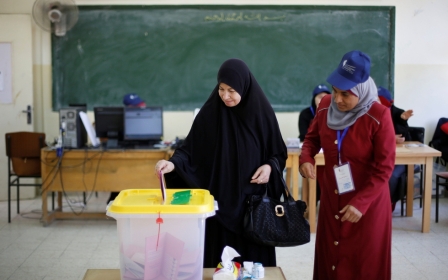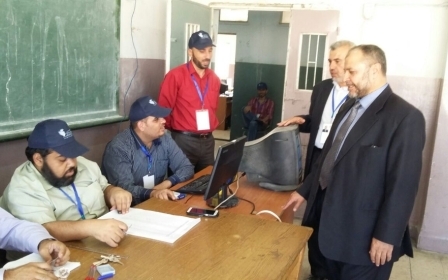Women and Muslim Brotherhood make gains in Jordan's elections

Despite a low turnout, women and Islamists made gains in Jordan's parliamentary elections.
Women increased their political representation by taking 20 out of the 130 seats of parliament. Jordan reduced the ranks of parliament this election to 130 from 150 previously, of which only 18 had been women. Tuesday's vote featured 252 female candidates, the highest number in Jordan's history, with 15 seats reserved for women.
“It’s a sign of growing acceptance among the public,” Asma Khader, a former Jordanian minister, told the Guardian. “People are now ready to see women’s names and photographs on political campaign posters around the country.”
Jordan's Muslim Brotherhood gained a foothold in parliament after ending a decade-long boycott and returning to the fray as the mainstay of a broad civic alliance.
The Islamists, easily Jordan's biggest organised political grouping, had shunned previous elections in protest at a system that skews representation toward thinly populated rural areas dominated by tribal politics, rather than the cities, where the Brotherhood is stronger.
But under pressure from a government crackdown after Islamist-led protests in the wake of the Arab Spring, the Brotherhood's political arm, the Islamic Action Front (IAF), ditched its "Islam is the Solution" slogan and joined with Christians and prominent national figures to create the National Coalition for Reform (NCR).
NCR won at least 16 of the 130 seats, according to preliminary results.
Zaki Bani Rusheid, a prominent Brotherhood leader, said the NCR would seek alliances with other groups to try to form an effective opposition.
Although Jordan has no ruling party, its government, appointed by King Abdullah, has for years faced little or no opposition from a parliament dominated by pro-government tribal leaders, businessmen and ex-security officials, often elected on promises to address local rather than national concerns.
While the NCR will not have the power to block legislation or cabinet appointments, it may bring livelier debate to what has been almost a rubber-stamp assembly, whose passivity has allowed successive governments to enact sometimes draconian temporary laws restricting public freedoms.
Although the vote represents a modest step in a democratisation process launched by the king, a staunch US ally, as he seeks to insulate Jordan from the conflicts at its borders, the NCR is likely to use the platform to air demands for a more representative electoral system.
The alliance won at least one seat in most major multi-member constituencies, according to initial results.
Although the national turnout was a mere 37 percent, analysts said it would have been significantly lower if the Islamists had not taken part.
International observers praised Jordan for holding relatively well-administered elections at a time of regional turbulence, but urged broader political representation.
"There is no equality of the vote. Under the current districting, large urban areas are under-represented, and sparsely populated or rural areas are considerably over-represented,” the EU's chief observer, Jo Leinen, told reporters.
Many citizens in major cities, where more than two-thirds of the population live, are of Palestinian descent. Their political empowerment in a country where native Jordanian tribes hold power is a sensitive issue.
On Tuesday, the Middle East Eye reported on a lack of enthusiasm at the polls.
Election analyst Ayoub Alnmour told MEE: “In Jordan, parliament doesn’t have sufficient constitutional authority to prove itself as a change-maker at a policy level, which is unfortunate. It is more focused on tribal representation, local services and job opportunities for family members.
“For me, the major short-term impact this election is bringing isn’t political. It’s social.”
This article is available in French on Middle East Eye French edition.
New MEE newsletter: Jerusalem Dispatch
Sign up to get the latest insights and analysis on Israel-Palestine, alongside Turkey Unpacked and other MEE newsletters
Middle East Eye delivers independent and unrivalled coverage and analysis of the Middle East, North Africa and beyond. To learn more about republishing this content and the associated fees, please fill out this form. More about MEE can be found here.




